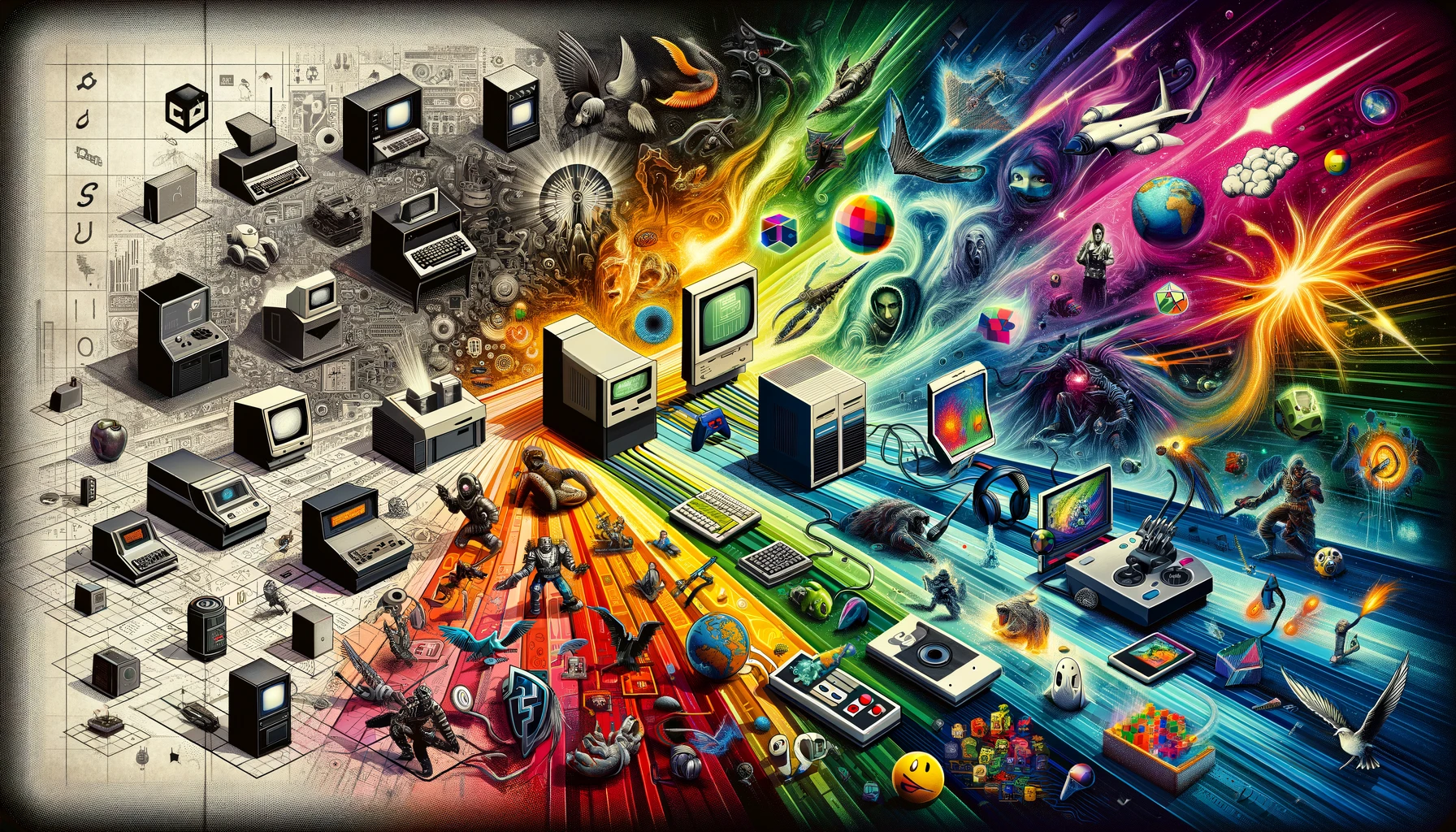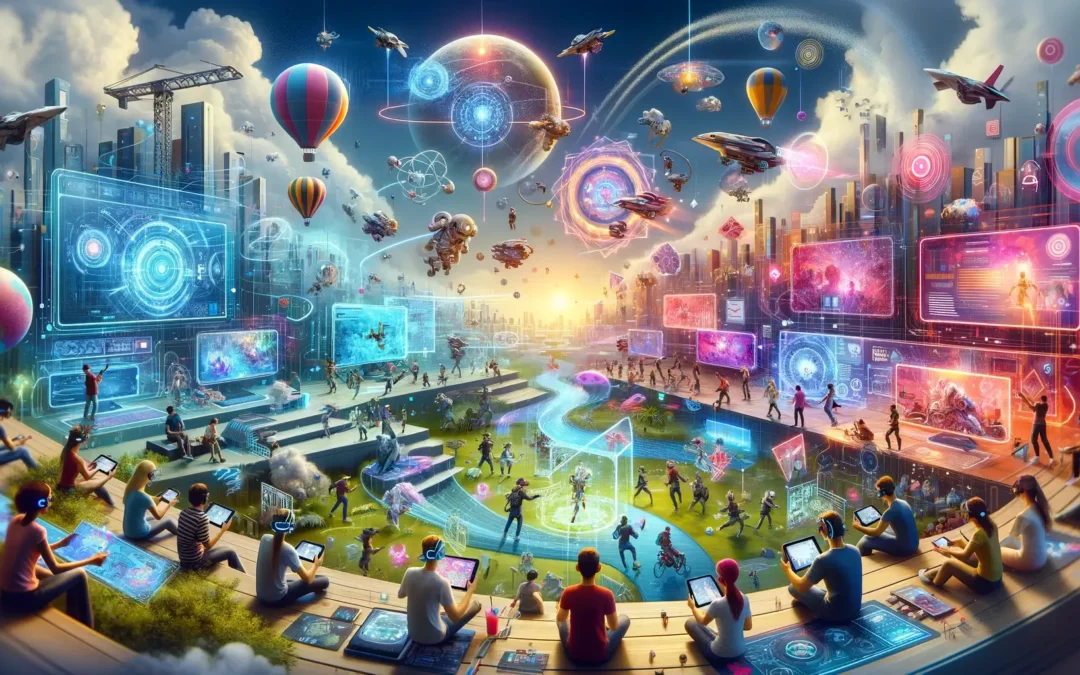Gaming has evolved from rudimentary computer games to a global entertainment industry worth billions. This transformation has not only changed how we play but also how we interact with digital worlds and communities. This article explores the evolution of gaming, highlighting key milestones and technological advancements.
The Dawn of Digital Gaming (1950s – 1970s)
The history of gaming can be traced back to the 1950s, with the creation of simple computer games on massive mainframe computers in universities. Notably, “Spacewar!” developed in 1962 at MIT, became one of the first video games to gain widespread popularity.
The Birth of the Arcade and Home Console Era (1970s – 1980s)
The 1970s introduced the world to arcade gaming, with Atari’s release of “Pong” in 1972 sparking a global interest in video games. This era also saw the advent of home gaming consoles, with the Magnavox Odyssey released in 1972, laying the groundwork for future home entertainment.
The Rise of Personal Computing and Gaming (1980s – 1990s)
The 1980s and 1990s saw the rise of personal computers, making gaming more accessible. Iconic games like “Pac-Man” and later “Doom” changed the gaming landscape, introducing genres and gameplay mechanics that are still popular today.
The Advent of Online Gaming and Multiplayer Experiences (1990s – 2000s)
Online gaming took off in the late 1990s with the internet becoming more accessible. Games like “Ultima Online” and “World of Warcraft” later on, revolutionized gaming by creating vast online worlds for players to explore together.
The Modern Era of Gaming: Mobile and VR (2000s – Present)
The 2000s saw the advent of mobile gaming, with games like “Angry Birds” and “Candy Crush” becoming cultural phenomena. Additionally, the development of VR technology has begun to offer immersive experiences that were once the realm of science fiction.
The Impact of Gaming on Culture and Society
Gaming has had a profound impact on culture and society, influencing everything from popular culture to the development of cutting-edge technology. It has become a platform for storytelling, education, and social interaction.
Future Trends in Gaming
As we look to the future, technologies like augmented reality (AR), cloud gaming, and AI are set to redefine the gaming experience. The possibilities are endless, promising even more immersive and interactive gaming experiences.
Conclusion
The history of gaming is a testament to human creativity and technological advancement. From simple beginnings to complex online worlds, gaming continues to evolve, offering new ways to play, learn, and connect with others around the globe.



